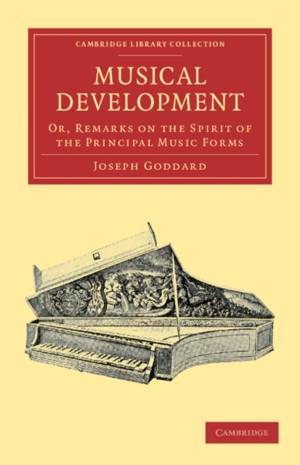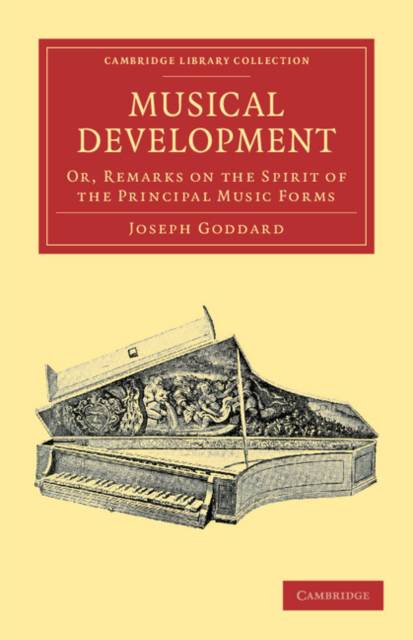
- Afhalen na 1 uur in een winkel met voorraad
- Gratis thuislevering in België vanaf € 30
- Ruim aanbod met 7 miljoen producten
- Afhalen na 1 uur in een winkel met voorraad
- Gratis thuislevering in België vanaf € 30
- Ruim aanbod met 7 miljoen producten
Zoeken
€ 49,95
+ 99 punten
Omschrijving
Joseph Goddard (1833-1910) was a philosopher, theorist and historian of the music of the late eighteenth and early nineteenth centuries, who developed some highly influential ideas about the relationship between music and human evolution. First published in 1868, this study presents Goddard's theory on the connection between music and the human spirit, in which he argues that two major counterparts of emotion - instinctive and abstract - correlate directly with two key elements of music: melody and harmony. He demonstrates this through a fascinating and thorough comparative analysis of the works of Mozart, Beethoven, Haydn and Mendelssohn, and moves on to show how emotion is expressed in the melodic and harmonic styles of sacred music and opera. Concluding with a detailed analysis of how mental progress has influenced the development of music, this thorough and judicious work remains of interest in the fields of music history, philosophy, and theory.
Specificaties
Betrokkenen
- Auteur(s):
- Uitgeverij:
Inhoud
- Aantal bladzijden:
- 152
- Taal:
- Engels
- Reeks:
Eigenschappen
- Productcode (EAN):
- 9781108038614
- Verschijningsdatum:
- 20/10/2011
- Uitvoering:
- Paperback
- Formaat:
- Trade paperback (VS)
- Afmetingen:
- 140 mm x 216 mm
- Gewicht:
- 199 g

Alleen bij Standaard Boekhandel
+ 99 punten op je klantenkaart van Standaard Boekhandel
Beoordelingen
We publiceren alleen reviews die voldoen aan de voorwaarden voor reviews. Bekijk onze voorwaarden voor reviews.











